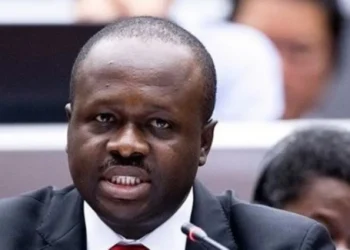The Member of Parliament for North Tongu Constituency, Honorable Samuel Okudzeto Ablakwa has emphasized the need to review the Accra Redevelopment Policy.
He argued that the policy has not served its intended purpose and has led to the displacement of public officials from their homes to make way for luxury apartments.
Honorable Ablakwa, the lead proponent of the Public Asset Protection Bill 2024, which aims to prohibit politicians and politically exposed persons from purchasing state assets, argued that the policy has been exploited by politicians and politically exposed persons, who have acquired state assets at the expense of the public.
“We need to hold people accountable for their actions,” Honorable Ablakwa stated, adding that the implementation of the Accra Redevelopment Policy has dislodged a lot of government and public officials from their homes to give way to luxury apartments.
Touching on the significance of the proposed bill, Hon. Ablakwa firmly stated clearly that there are some severe sanctions, including fines and jail terms, for persons who violate the “proposed law” with a minimum of 5 years imprisonment and the asset confiscated back to the stated.
“We need to close the loopholes that allow politicians and politically exposed persons to acquire state assets”, he added.
Furthermore, Honorable Samuel Okudzeto Ablakwa commended some leading MPs from the Majority Caucus including Honorable Kwaku Kwarteng, Honorable Dr. Dickson Adomako Kissi, Honorable Yves Hanson Nortey and Honorable Paul Apreku Twum-Barimah for supporting the proposed bill.
He further indicated that the proposed bill defines politically exposed persons as including immediate family members, spouses, children, parents, and siblings. Hon Ablakwa stressed that this definition is crucial in preventing politicians and their associates from exploiting state assets.
Transparency and Accountability on State Assets
Hon. Ablakwa highlighted on the importance of protecting public assets in Ghana and ensuring that they are used for the benefit of the public, rather than being exploited by politicians and politically exposed persons.
He emphasized that the proposed Public Assets Protection Bill 2024 is a step in the right direction, asserting that its passage is crucial in promoting accountability and transparency in the management of public assets.
Hon. Ablakwa also envisioned that the proposed Public Assets Protection Bill 2024 is a crucial step in preventing the exploitation of state assets by politicians and politically exposed persons.
Highlighting the need for accountability and transparency in the management of public assets, Honorable Ablakwa stated “We need to protect public assets from being acquired by politicians and politically exposed persons,”.
According to him, these assets are meant for the benefit of the public, not for the enrichment of a few individuals in the country. He called for the need for the government to prioritize the needs of the public over the interests of politicians and politically exposed persons.
Meanwhile, Director of State Transport Corporation (STC) Nana Akomea posed an important question regarding the concerns with the Accra Redevelopment policy, including its rationale, policy imperatives, and implementation.

He also called for a review of the policy to ascertain whether over the years public policy has been achieving or not.
“…a review would allow us to see if the purposes of public policy have been achieved. Yes So, but the principle is that the land use has to change. It has to change because these are prime lands So change them and have it change into a high occupancy area, high net because the value of the land and the building on it totally is a mismatch.”
Nana Akomea, Director STC
Nana Akomea further highlighted the need to reconsider the rate at which people give out state lands as to whether prices dealings are fair in the first place. He also touched on the need for transparency and fairness in the process of alienating public assets.
The discussion on protecting public assets in Ghana emphasized the need for accountability, transparency, and fairness in the management of public assets.
READ ALSO: Biden Acknowledges Concessions From Germany In Prisoner Exchange



















